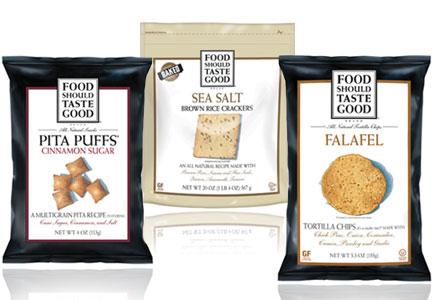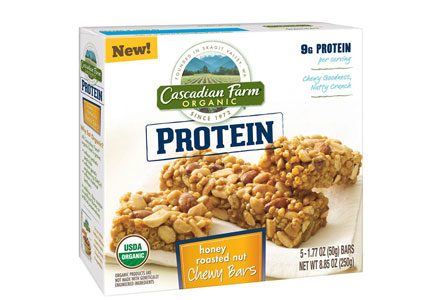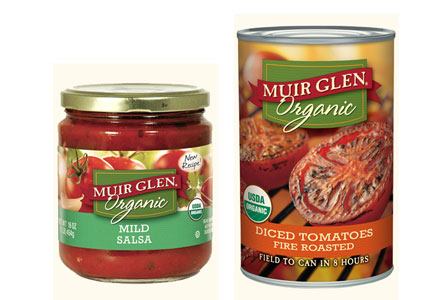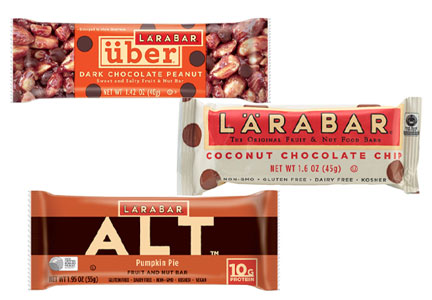From canned tomatoes to ready-to-eat cereal, the division competes in 14 categories under the brands Cascadian Farm, Muir Glen, Larabar and Food Should Taste Good. Each brand sources organic ingredients and currently is pursuing Non-G.M.O. Project verification for its products.
“The better-for-you snacking space in developed markets, particularly with a focus here in the U.S., remains attractive to us,” said Don Mulligan, executive vice-president and chief financial officer of General Mills, this past November during a presentation at the Morgan Stanley Global Consumer & Retail Conference. “We did Larabar a few years ago; we had Food Should Taste Good about 18 months ago. Those businesses have integrated well and are helping grow our Small Planet Foods division, which is now a $300 million plus business for us. So, we continue to look, but … we want to make sure we find the right property at the right price if we're going to make a move in that regard.”
During the Natural Products Expo West, held March 7-9 in Anaheim, Calif., representatives from each of the four brands spoke with Food Business News about product innovation and insights from the natural and organic segment.

Food Should Taste Good
From chocolate to kimchi, tortilla chip varieties from Food Should Taste Good vary widely based on flavor trends and untapped opportunity in the market. Such is the brand’s approach to innovation; the company identifies flavors not offered in mainstream snack chips, such as falafel, and uses nutritious ingredients like flax, quinoa and amaranth to develop them. The brand’s distribution continues to expand in grocery stores and drug and convenience stores. Retail sales for Food Should Taste Good increased 6% in measured channels last year.
The products are designed to appeal to “anyone who likes snacking,” said Megan Gunderson, a spokesperson for the brand, but health-conscious consumers and women in particular are drawn to the snacks’ clean labels and better-for-you ingredients.
“Moms are buying them for their kids,” Ms. Gunderson said.
General Mills acquired the Needham Heights, Mass.-based brand in early 2012. Products include tortilla chips and kettle-cooked sweet potato chips, plus two new lines: pita puffs, available in multigrain, pesto, cinnamon sugar and chive flavors; and gluten-free brown rice crackers, available in tomato and basil, peppercorn blend, sea salt, and roasted red pepper varieties.

Cascadian Farm
A pioneer in the organic segment since 1972, Cascadian Farm offers a portfolio of more than 75 products spanning the categories of cereal, granolas and granola bars, frozen fruits and vegetables, fruit spreads, juice concentrates and more. Retail sales for the brand grew 11% last year from expanded distribution and new flavors.
The latest innovation from the Sedro- Woolley, Wash.-based brand includes a graham crunch cereal and chewy granola bars made with pea protein. The protein bars, available in peanut butter chocolate chip and honey roasted nut flavors, were developed as an alternative to nutrition bars containing soy and whey protein, said Katie Proctor, a spokesperson for the brand.
“They’re providing a unique protein, and the texture is not hard, dry or chalky, like other bars,” she said.
Graham Crunch cereal joins a line of cereals positioned as organic versions of popular brands, Ms. Proctor said. The new variety, for example, is similar to General Mills’ Golden Grahams cereal.
Recently, Cascadian Farm unveiled new cereal box liners made from renewable plant sources as part of the brand’s sustainability efforts. The move represents “one small change we made in helping our environmental impact,” Ms. Proctor said.

Muir Glen
Refreshed salsa recipes and a seasonal tomato variety debuted from Muir Glen this year. Likened to a reserve wine, Muir Glen’s Reserve Tomato harvest is grown each season from a 13-acre plot of the brand’s California farm. The 2013 Reserve line features the Halley tomato, a variety with a sweet flavor, in diced and fire-roasted diced forms through October. The limited-edition products offer gourmet appeal, said Patricia Baragar, a spokesperson for the brand.
Muir Glen also refined the recipes for its mild and medium salsas. The key difference: organic tomatoes jarred within eight hours as part of efforts “to have a fresher process,” Ms. Baragar said.
The company also recently transitioned to BPA-free can liners. All of Muir Glen’s ingredients are certified organic.
“We listen to what consumers ask for,” Ms. Baragar said.
It is with consumers in mind that the brand, founded in 1991, has launched a large-scale composting operation with its independent organic farmers to convert tomato-processing waste into nutrient-rich soil.
“We want to encourage consumers to do it, too,” Ms. Baragar said.

Larabar
The maker of clean-label fruit and nut bars is entering the granola category with Renola, a gluten-free, G.M.O.-free snack in three flavors: cinnamon nut, berry, and cocoa nut. Set to debut in June, the products contain seeds, nuts and fruit and are sweetened with dried molasses.
“Anytime you launch into something you haven’t done before, it’s a challenge because it’s a whole new aisle and not necessarily the same consumer,” said Annie Parsons, a spokesperson for Larabar.
The company’s flagship line of energy bars features between two and nine ingredients each, including a blended base of dates and almonds or cashews with more nuts and dried fruit added, depending on the flavor.
The brand’s Alt line includes vegan, gluten-free and dairy-free bars made with pea protein, and the Uber line features sweet and salty bars made with whole fruits and nuts. Most recently, Larabar added two flavors to its Uber line: dark chocolate peanut and dark chocolate turtle.
Founded in 2002 and acquired by General Mills in 2008, Larabar sources fair-trade cocoa and coffee and non-bioengineered ingredients. Because Larabar’s products are made with “things you can find in your own kitchen,” Ms. Parsons said, copycat recipes for the bars abound on-line.
“We think it’s a good thing,” Ms. Parsons said. “If you know you can make it yourself, you can trust how good it is. It’s an easy option people feel good about.”





